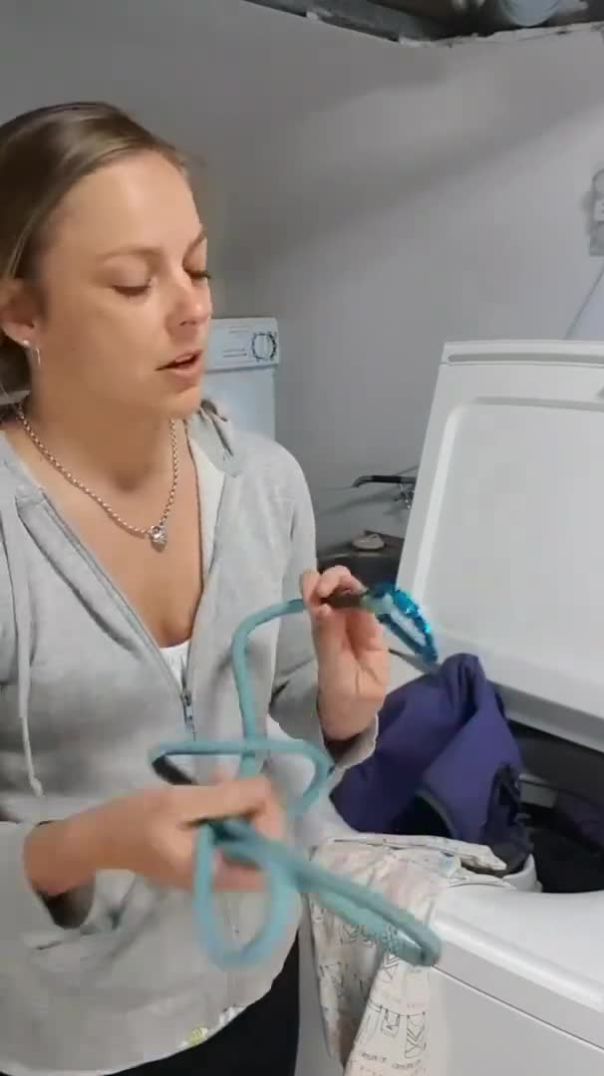14 Views· 24 August 2022
Why We Eat Oysters Alive
Raw oysters are either still alive - or freshly killed - when you eat them. Most people think keeping them alive longer makes them safer to eat, but that's not the full story.
------------------------------------------------------
#WhyWeEatOystersAlive
Science Insider tells you all you need to know about science: space, medicine, biotech, physiology, and more.
Subscribe to our channel and visit us at: http://www.businessinsider.com/science
Science Insider on Facebook: https://www.facebook.com/BusinessInsiderScience/
Science Insider on Instagram: https://www.instagram.com/science_insider/
Business Insider on Twitter: https://twitter.com/businessinsider
Tech Insider on Twitter: https://twitter.com/techinsider
------------------------------------------------------
Following is a transcript of the video:
Raw oysters are either still alive - or freshly killed - when you eat them. Most people think keeping them alive longer makes them safer to eat, but that's not the full story. Oyster expert Julie Qiu explains.
Following is the transcript of the video.
David Anderson: "Wanna know a secret? This oyster I'm about to eat could still be alive! So, why do we do this?"
Most people think it's a food safety issue. Keep the oyster alive as long as possible, to reduce the risk of bacterial contamination. And there is a little bit of truth to that. Oysters can carry a scary flesh-eating bacteria called vibrio vulnificus. You can get it from oysters or from swimming in warm brackish water. But let's put that into perspective.
Julie Qiu: "The risk of running into a bad oyster is lower than people think it is. My biggest pet peeve is that people go crazy over one bad oyster but they don't really care that hundreds of thousands of pounds of lettuce are contaminated with salmonella"
About 100 people die from vibrio infections (including from vibrio vulnificus) each year, about 450 die from salmonella. Plus, the FDA requires that oyster farms have to test water quality before sending oysters out to markets and restaurants. And that's important, because oysters are filter feeders. They soak up basically anything that's in the water around them — including fecal matter which can come from rain runoff.
But there’s a clever way to check if your oysters are good.
Julie Qiu: "one thing that you can ask for is a shellfish tag, which every retailer or restaurant is required to have for every bag of oysters that they purchase for up to 90 days after they make that purchase. So that tag, if they don't have it, don't eat those oysters."
This tag is a way for restaurants to track where and when their oysters were farmed. Qiu says that she looks for the most recent dates on the tag. Anything further out than two weeks won't taste as good and increases the risk of a bad oyster.
Some chefs may look at you funny for asking for the documentation, but it's a strategy that apparently works.
Julie Qiu: "I've had thousands of oysters and never had a bad one"
Ok great, so basically, oysters are safe, why on earth are they sometimes alive when we eat them??
Julie Qiu: "You really want your raw shellfish to be really fresh and the freshest you can get is something that is recently killed, so it goes back to not only the food safety but the actual taste and texture is going to be far superior when it's a fresh oyster."
So yeah, freshly killed oysters taste better. And it's hard to tell exactly when an oyster dies, because before it's served, it's shucked. It's not a gentle process. Shucking involves separating the oyster’s abductor muscle from the shell. This muscle gives the oyster control over opening and closing its shell. Similar to how your spinal cord helps you move. So, severing the their abductor muscle is almost like severing your spine. Yikes.
Most restaurants in the US keep their oysters alive - on ice - up until this shucking process, which afterwards, either leaves the oyster dead, or immobile. Since they don’t move around much in the first place, it's not easy to tell which.
So you're eating an oyster that was either just killed or is dying. And that seems pretty cruel, right? But considering that the oyster's biology is very primitive, it's possible they might not even feel pain at all.
Julie Qiu: "They don't have a brain, they're not really processing pain the same way the same way we are feeling so I don't think they're feeling pain the same way we are thinking of it."
So really, it's up to you. If you don't want to eat oysters, that's fine. If you do, you'll be far from the first.
Julie Qiu: "It's one of the few foods that have not changed for thousands and thousands of years so being able to appreciate that is something that's really special and remarkable and something that should be celebrated for what it is."












![Chance the Rapper - Buried Alive (2024) | STAR LINE [Official Music Video]](https://i.ytimg.com/vi/8BjfkpgbAEY/maxresdefault.jpg)















0 Comments